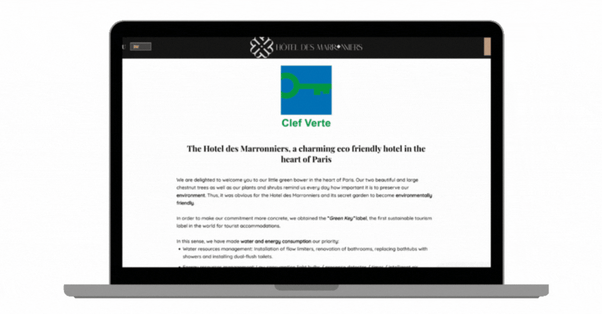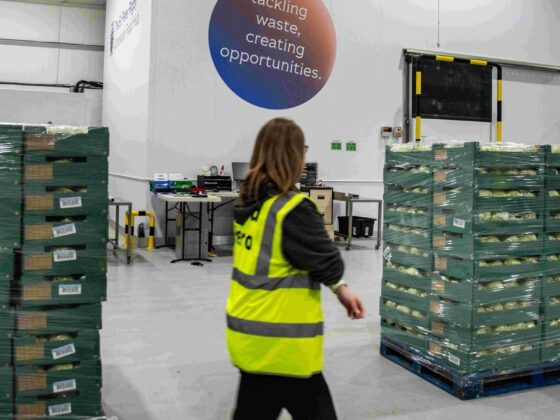The hospitality industry is undergoing a profound transformation, driven by the evolving preferences of Generation Z. As the most sustainability-conscious generation to date, Gen Z travelers are not only aware of environmental and social issues but actively seek accommodations that align with their values.
87% of Gen Z travelers are willing to pay more for sustainable options if they can make a positive contribution. The message is clear: sustainability is a fundamental part of the decision-making process.
Generation Z has grown up with a heightened awareness of climate issues and a strong commitment to reducing their carbon footprint even when traveling. This mindset translates into a clear preference for hotels that take concrete, visible steps toward sustainability: using renewable energy, eliminating single-use plastics, optimizing water and energy consumption, and prioritizing local, sustainable food sourcing.
But for Gen Z, sustainability is just one part of the equation. Ethical business practices, fair treatment of employees, and meaningful community engagement also shape their perception of a brand. They’re looking for hotels that do more than minimize harm, they want to see businesses that create positive impact. That means supporting local economies, treating people fairly, and being open about their practices.
Transparency is key. Hotels that lead with honesty and authenticity sharing both their achievements and areas for growth will earn the trust and loyalty of this socially conscious generation.
How Hotels Can Attract Gen Z Travelers with Value-Aligned Experiences
Given these evolving expectations, hotels must adapt their approach to attract and retain this new generation of travelers.
One of the most effective strategies is to offer exclusive deals tailored to their values. For example, some hotels provide discounts to guests who choose eco-friendly transportation methods such as trains or carpooling. Others introduce packages that include sustainable local experiences, strengthening their connection with local cultures and communities. Additionally, encouraging longer stays through special perks promotes a slower and more responsible form of tourism.
To maximize the impact of these initiatives, hotels should ensure that their eco-friendly offerings are clearly highlighted on their website through customizable on-site layers. These Layers allow each visitor to directly see the sustainable options available such as green transportation incentives, low-impact activities, or eco-certifications based on their behavior or preferences. This level of personalization not only increases visibility but also enhances engagement with environmentally conscious guests.

Layer from Hotel Montparnasse Alésia promoting sustainable stays
Which Hotel Sustainability Certifications Build Guest Trust?
Hotels are increasingly recognizing the importance of transparency in their sustainability efforts. Certifications like Green Key, EarthCheck, and B Corp are no longer formalities; they have become critical trust signals in a traveler’s decision-making process.
For example, properties such as Hôtel des Marronniers prominently showcase these certifications to communicate their commitment to environmental and social responsibility. Displaying such labels whether on hotel websites, booking pages or on-site signage offers travelers reassurance that sustainability is more than a marketing buzzword. These certifications help guests to identify hotels that meet globally recognized standards of sustainability.

Building Trust Through Transparency: Highlighting Eco-Certifications for Sustainable Stays
Why GEO Matters: Meeting Gen Z Travelers Where They Plan
As the way travelers search and plan evolves, optimizing your hotel’s digital presence goes beyond traditional SEO. That’s where GEO (Generative Engine Optimization) comes in.
With the rise of AI tools like ChatGPT, Google Gemini, and Bing AI, more travelers, especially digital-native Gen Z, are asking conversational questions like “What are the most sustainable hotels in Paris?” or “Which hotels support local communities in Lisbon?” Instead of static search results, they’re receiving curated, AI-generated answers.
GEO ensures your hotel appears within those AI answers, not just as a link in search results. Like SEO, it involves optimizing your website content, but with a sharper focus on structure, clarity, and contextual relevance that generative engines rely on. For hotels, this means going beyond having sustainable initiatives in place. It’s about clearly communicating those efforts in a way that AI can understand when it matters most, during the decision-making moment.
By structuring your content to align with Gen Z’s values and ensuring it’s GEO-ready, you increase the chances of appearing in trip-planning recommendations, earning trust at the exact point of inspiration.
The Future of Hospitality is Sustainable
Sustainability is no longer a niche concern, it’s becoming a natural expectation, especially among younger travelers. For Gen Z, caring for the planet isn’t just a trend, it’s part of how they see and experience the world. And with this generation projected to make up nearly half of all travelers by 2027, their values are already shaping the future of hospitality.
This isn’t about perfection, but progress. Small steps like reducing waste or supporting local communities can add up to a meaningful difference. Hotels that make these efforts aren’t just contributing to a better world; they’re also building stronger, more authentic connections with the guests of tomorrow.
The good news? This shift opens up exciting opportunities. By embracing a more thoughtful, future-ready approach, hotels can stand out and inspire loyalty not just for what they offer, but for what they stand for. For more examples and actionable ideas, check out our guide to learn more about how to develop sustainability strategies and communicate them effectively on your hotel website.









